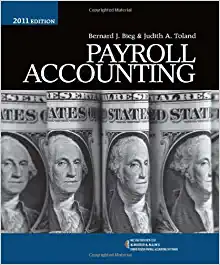Question
E14-24 On December 31, 2020, Green Bank enters into a debt restructuring agreement with Troubled Inc., which is now experiencing financial trouble. The bank agrees
E14-24
On December 31, 2020, Green Bank enters into a debt restructuring agreement with Troubled Inc., which is now experiencing financial trouble. The bank agrees to restructure a $2-million, 12% note receivable issued at par by the following modifications:
Reducing the principal obligation from $2 million to $1.9 million
Extending the maturity date from December 31, 2020, to December 31, 2023
Reducing the interest rate from 12% to 10%
Troubled pays interest at the end of each year. On January 1, 2024, Troubled Inc. pays $1.9 million in cash to Green Bank. Troubled prepares financial statements in accordance with IFRS 9.
Instructions
a. Using (1) factor tables, (2) a financial calculator, or (3) Excel function PV, determine whether or not Troubled should record a gain.
b. Prepare an entry at December 31, 2020, based on the results of your calculation.
c. Prepare an effective interest amortization table for the remaining term of the note. Round to the nearest dollar.
d. Prepare the interest payment entry for Troubled on December 31, 2022, and the entry on January 1, 2024.
e. Assume instead that Troubled follows ASPE. Using (1) a financial calculator or (2) Excel function Rate, calculate the rate of interest that Troubled should use to calculate its interest expense in future periods. (Hint: Refer to Chapter 3 for tips on calculating.) Round the interest rate calculated to four decimal places.
f. Continuing the assumption of following ASPE, prepare an effective interest amortization table for the remaining term of the note. Round to the nearest dollar.
g. Continuing the assumption of following ASPE, prepare the interest payment entry for Troubled on December 31, 2022, and the entry on January 1, 2024.
E14.26 (LO 3) (SettlementDebtor's Entries) Use the same information as in E14.24 but assume now that Green Bank reduced the principal to $1.6 million rather than $1.9 million. On January 1, 2024, Troubled Inc. pays $1.6 million in cash to Green Bank for the principal. The market rate is currently 10%.
Instructions
a. Using (1) factor tables, (2) a financial calculator, or (3) Excel function PV, determine if Troubled can record a gain under this term modification. If yes, calculate the gain. (Hint: Refer to Chapter 3 for tips on calculating.) Round to the nearest dollar.
b. Prepare the journal entry to record the gain (if any) on Troubled's books.
c. What interest rate should Troubled use to calculate its interest expense in future periods? Will your answer be the same as in E14.24? Why or why not?
d. Prepare the amortization schedule of the note for Troubled after the debt restructuring.
e. Prepare the interest payment entries for Troubled on December 31, 2021, 2022, and 2023.
f. What entry should Troubled make on January 1, 2024?
E14-27
Use the information in E14.24 and the assumptions in E14.26 and answer the following questions related to Green Bank (the creditor).
Instructions
a. What interest rate should Green Bank use to calculate the loss on the debt restructuring?
b. Using (1) factor tables, (2) a financial calculator, or (3) Excel function PV, calculate the loss that Green Bank will accrue under this new term modification. Prepare the journal entry to record the loss on Green Bank's books. Round to the nearest dollar.
Step by Step Solution
There are 3 Steps involved in it
Step: 1

Get Instant Access to Expert-Tailored Solutions
See step-by-step solutions with expert insights and AI powered tools for academic success
Step: 2

Step: 3

Ace Your Homework with AI
Get the answers you need in no time with our AI-driven, step-by-step assistance
Get Started


